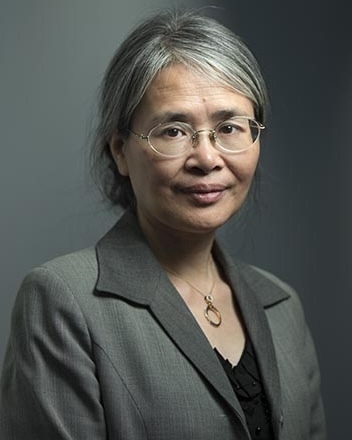Feng Yuan (1962—), a journalist, and a feminist activist. Feng Yuan was born in 1962 in Yilong County, Sichuan, and took her mother's surname. In 1979, she was admitted to Fudan University’s Journalism Department and graduated with a bachelor's degree in 1983. She then pursued a master's degree in journalism at the Graduate School of the Chinese Academy of Social Sciences, completing it in 1986. During her internship at
People's Daily in 1983, she met Wang Ruoshui, a philosopher and former deputy editor-in-chief of
People's Daily who was being criticized and removed from his post. Feng Yuan married Wang Ruoshui in 1987.
Feng Yuan was transferred out of
People's Daily in 1991 due to her inability to accept the suppression of civilians during the 1989 Tiananmen Square crackdown. From 1993 to 1994, she accompanied Wang Ruoshui to Harvard University, where she read feminist literature, audited courses, and became involved in feminist activities on campus. Upon returning to China, Feng Yuan joined
China Women's News and devoted herself to feminist and anti-domestic violence activism. She was selected as a Nieman Fellow for 2002 at Harvard University, and she lived in the U.S. with Wang Ruoshui from 2000 to 2002. While at Harvard, Wang Ruoshi died of lung cancer.
Feng Yuan's feminist activities cover multiple fields, including advocating for anti-domestic violence legislation, conducting gender equality awareness training, building leadership among rural women, and empowering women with HIV/AIDS. Since the 1980s, Feng has been active in China's feminist issues: she was a firsthand participant in the 1995 Fourth World Conference on Women (Beijing World Conference), which had a profound impact on her activism, making her one of the early participants in China's feminist NGOs.
Feng Yuan has dedicated significant energy to the fight against gender-based violence. She served as an advisor and visiting professor at the Shantou University Women's Studies Center and contributed to the advocacy for China’s first Anti-Domestic Violence Law. The law began its legislative process in 2015 and was implemented in 2016. Feng Yuan was one of the leaders driving the law's passage, working for 15 years to push for its grassroots legislation. She also actively engaged with women's rights organizations, co-founding the "Beijing Women’s Rights Organization" in 2014. After the law's implementation, she shifted to a supervisory role and annually published the only professional civil monitoring report on the law.
Four years after the Anti-Domestic Violence Law was passed, Feng Yuan discussed ongoing domestic violence cases in China during an interview with
Initium and
statedthat criticizing local governments for ongoing domestic violence was too mild:
"It pretends like the problem lies at the local level; As if they are the only ones failing, while the mid-level and high-level governments bear no fault... The issue of inaction appears to be a local problem, but in reality, it is a systemic one. Whether it is the Women's Federation, public security, civil affairs, or healthcare, they are all the same." She emphasized that addressing domestic violence is not just about the issue itself but also closely related to law enforcement personnel training, power allocation, judicial perspectives, supporting legal measures, accountability and oversight systems, as well as social culture and media freedom.
